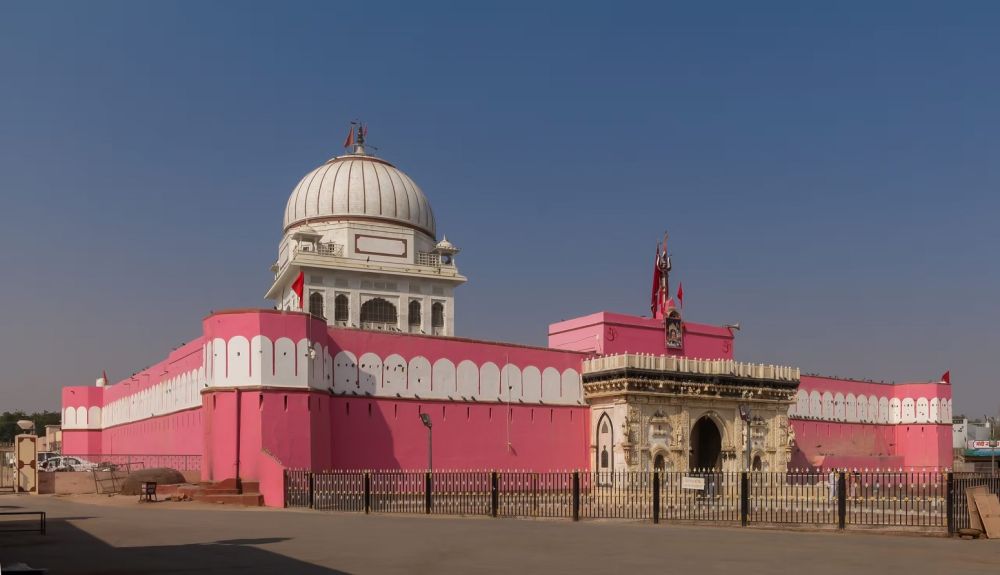

Located about 30 km from Bikaner, in the small town of Deshnok, Rajasthan, the Karni Mata Temple stands as a unique symbol of veneration and attracts tourists from around the world. This temple, also known as the Temple of Rats, is dedicated to Karni Mata, an incarnation of the warrior goddess Durga. The history of tourism at Karni Mata Temple is deeply interwoven with its religious significance and the intriguing presence of thousands of holy rats, known as kabbas or little children.
The temple's origins date back to the 15th century when it was believed to be built by Maharaja Ganga Singh of Bikaner. Karni Mata, who lived in the 14th century, was considered a mystic matriarch from the Charan caste. She was revered as a living goddess who laid the foundation of Deshnok. After her purported disappearance from Earth, it was said that she and her lineage would reincarnate as rats inhabiting the temple.
The architectural beauty of the temple is another marvel that draws tourists. Built in the Mughal style of architecture with domes and a facade of intricate marble carvings, the temple's splendid silver gates and the beautiful marble panels that recount the history of the Karni Mata are an artistic wonder.
Tourism at Karni Mata Temple has seen considerable growth over the years. Initially, the visitors were primarily locals and pilgrims from around India. However, with increased global interest in offbeat and spiritual tourism, the temple has seen an influx of international tourists.
The temple's unique allure lies in the protection and reverence of approximately 25,000 black rats that reside within its walls. Visitors from all over the world are drawn to the spectacle of these creatures moving freely around the temple complex. It is considered auspicious to spot a rare white rat, which is believed to be Karni Mata herself or one of her four sons.
The most significant times of the year for visiting the temple are during the Navratri festivals. During these festivals, the temple hosts fairs and sees a dramatic increase in visitor numbers. Locals and tourists alike partake in the celebrations, seeking blessings and experiencing the vibrant Rajasthani culture.
In line with the current tourism trends, sustainable and respectful tourism practices are encouraged at the Karni Mata Temple. Visitors are advised to respect the temple's customs and the sanctity of the rats. The convergence of spirituality, curiosity, and cultural heritage makes the visit to Karni Mata Temple a travel trend that continues to grow each year.
When planning a visit to the temple, tourists are often reminded to respect the temple's customs, including walking barefoot through the complex and not disturbing the rats. Photography is allowed in certain areas but restricted in others to maintain the sacred atmosphere of the temple.
The Karni Mata Temple in Deshnok remains an exceptional example of India's spiritual and cultural fervor, making it a notable point of interest for tourists seeking to explore the diversity of religious practices and the rich history that India has to offer.